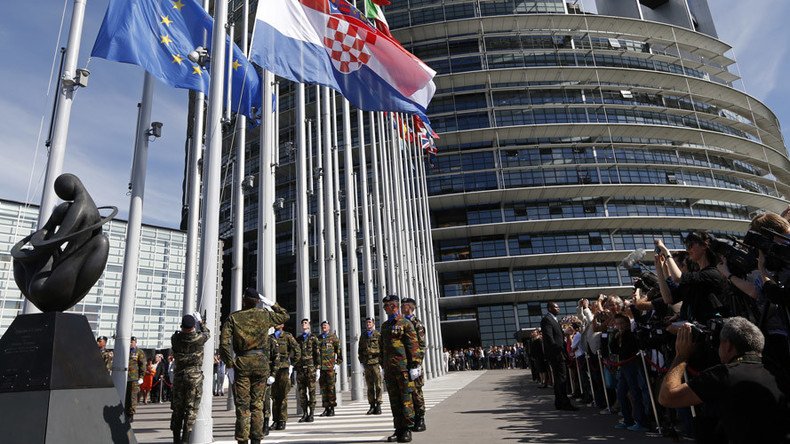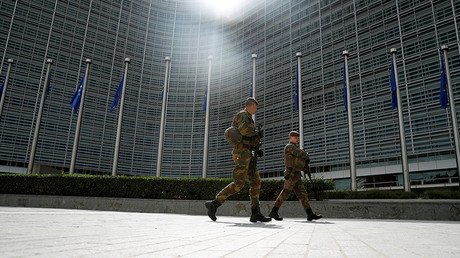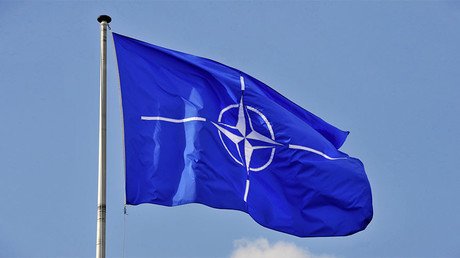‘Dagger pointed at heart of NATO’ – US secretary of state contender on EU army

The prospect of a real and operational EU army would have a poisonous effect on NATO, according to John Bolton, former US ambassador to the UN and current contender for the role of secretary of state.
“Over the course of the last 20 years, you’ve seen this idea [of a European army] appear over and over again,” Bolton said during an appearance on Breitbart News Daily radio on Wednesday. He was commenting on the recent push by the EU Parliament to pave the way for a European Defense Union, or, more plainly, a standing EU army.
“If they actually got to the point of achieving [a true EU military capability] – that would be a dagger pointed at the heart of NATO,” Bolton said.
The EU Parliament passed a non-binding resolution calling for the creation of a defense union on Tuesday, justifying the move by the threats it says the bloc is facing.
“Terrorism, hybrid threats and cyber and energy insecurity leave EU countries no choice but to step up their security and defense cooperation efforts, thus paving the way to the European Defence Union,” the EU Parliament said after passing the non-binding resolution. The proposals for the move will be addressed at a European Council meeting in December.
Under the resolution, member nations are expected to dedicate 2 percent of their GDP to defense spending, as well as establish multinational EU forces to allow the bloc to act in situations in which NATO could be unwilling to become involved.
“We need more security in Europe… We need it now. The idea that the Americans will eternally see to... European security is not true. We have to do it ourselves. And this is why we need a new approach to the European community of defense, including a European army,” European Commission President Jean-Claude Juncker said earlier this month.
Bolton claims, however, that such a move might lead to the union losing NATO protection – something that it has been taking for granted for some time, he says.
“If the EU says, ‘Actually, we can defend ourselves,’ I tell you, there are a lot of Americans who would say, ‘Fine, and by the way, the next time an authoritarian militaristic society threatens you, let us know how it turns out,’” he said.
Bolton also noted that, in his opinion, the EU would simply be incapable of creating an actual centralized military force of its own.
“If you want to rely on the EU, with all the efficiency of the bureaucracy in Brussels, ‘God help you’ is all I can say… You have a lot of rhetoric about capabilities, but underneath, it’s all hollow. It’s a hollow suit. You could end up provoking others, maybe Russia, and then when they find it’s weak, you’ve left yourself in even graver danger,” he said.
NATO – which includes within its ranks the majority of EU countries – and Russia have long exchanged accusations of destabilizing areas of Europe with military build-ups and constant exercises along each other’s borders.
While the idea of creating unified European armed forces has been floating around for years, just ahead of the EU Parliament’s decision on the matter, German Defense Minister Ursula von der Leyen called on Brussels to beef up its own military capabilities in the face of alleged Russian aggression.
“We have seen an enormous modernization drive by NATO over the past three years because of the Kremlin’s behavior,” the minister said. “That was correct and important, but I believe that we must invest at least the same energy in... [the] modernization of European security and [a] defense union.”
Bolton earlier said the EU has repeatedly made the mistake of claiming the credit for maintaining peace in Europe and Russia, or formerly the Soviet Union, at bay.
“It’s part of the delusion in the EU that peace has been kept in Europe since World War II, since the EU was formed, by the EU – as if they didn’t understand, and I think many don’t understand, peace in Europe has been kept by NATO and its resistance to the Soviet Union,” he wrote in the Times last week.
In his recent article, Bolton said that one of the essential differences between the EU and NATO is that the latter does not interfere in the sovereignty of its member nations.
He praised NATO as “America’s kind of international partnership: a classic politico-military alliance of nation states” that has “never purported to assume sovereign functions, and is as distant as is imaginable from the EU paradigm.”
A firm supporter of the military bloc, he even called for “a global alliance” to be formed.
Bolton was a foreign policy adviser to Donald Trump’s successful presidential campaign, although it is so far unclear what role, if any, he will play in the president-elect’s administration.














